Cutting-Edge Research on Embodied Cognition at an APS-ESCOP Cosponsored Symposium
Pursuing big questions in psychological science is an international effort. APS recently co-sponsored programs featuring cross-cutting research presentations by some of the most distinguished scientists in the field — “Social Psychology and the Neurosciences: Perspectives and Pitfalls” at the European Association of Social Psychology (EASP); “Exploring the Dynamic Interaction Between Genes, Environment and the Brain” at the Federation of the European Societies of Neuropsychology (ESN); and “Where is Embodiment Going?” at the European Society for Cognitive Psychology (ESCOP). Here are some of the program highlights.
Symposium on Embodiment at ESCOP 2011

ESCOP 2011 in Donostia-San Sebastián, Spain
ESCOP’s 2011 symposium on embodiment was held on September 30, 2011 in Donostia-San Sebastián, Spain.
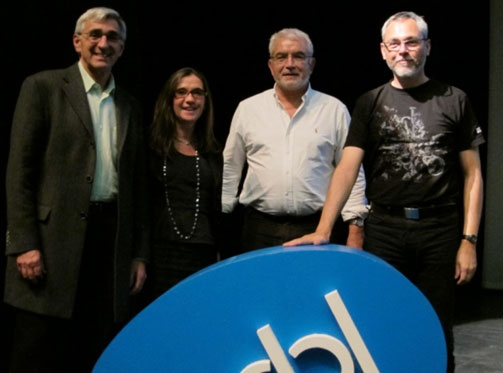
The speakers: (left to right) Arthur Glenberg, Gabriella Vigliocco, Gün R Semin, and Bernhard Hommel
Embodiment Panel: (left to right) Arthur Glenberg, Gabriella Vigliocco, Gün R Semin, and Bernhard Hommel
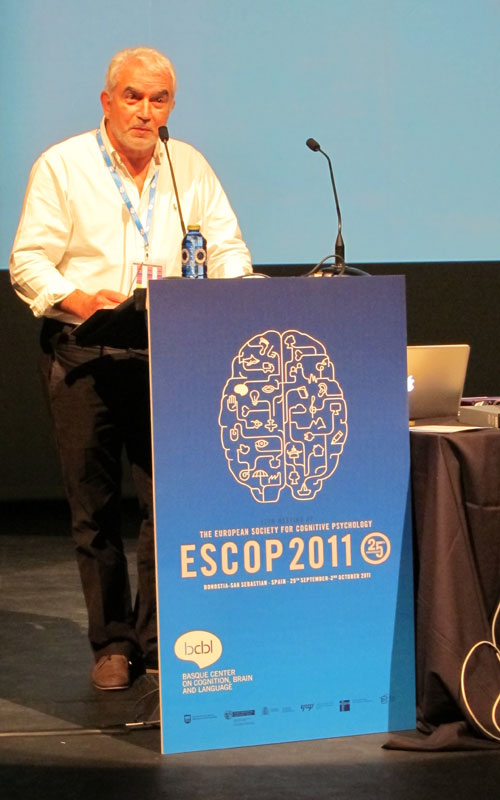
Gün R Semin
Symposium chair Gün R Semin (Utrecht University, Netherlands) spoke about the increasing interest in understanding how consistency in ecological, existential, material, and biological conditions can contribute to human functioning. In particular, he discussed how biological constraints could shape human functioning in social contexts. This perspective could spread across a wide range of disciplines.
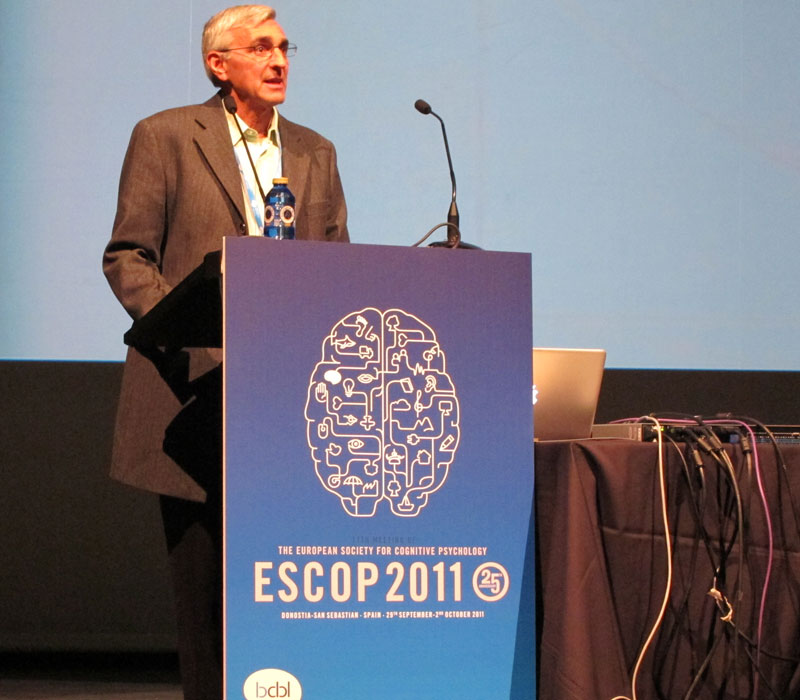
Arthur Glenberg
Arthur Glenberg (Arizona State University, USA) on how embodied cognition can reflect low-level processes related to energy regulation in the human body while also affecting an individual’s social and cultural interactions.
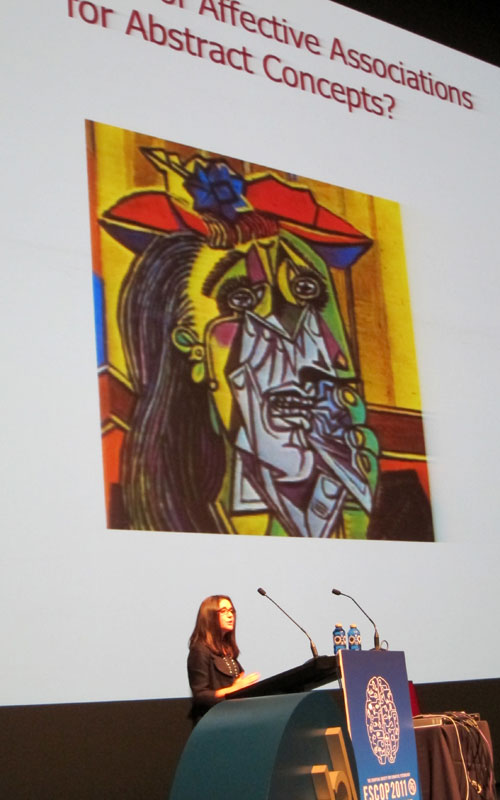
Gabriella Vigliocco
Gabriella Vigliocco (University College London, UK) discussed the distinction between concepts that are concrete, such as our sensorimotor experience with the external world, and abstract concepts grounded in our inner emotional states. Connecting abstract concepts with emotional states could play a key role in making abstract concepts learnable, given that these concepts are disadvantaged on a large number of other dimensions.
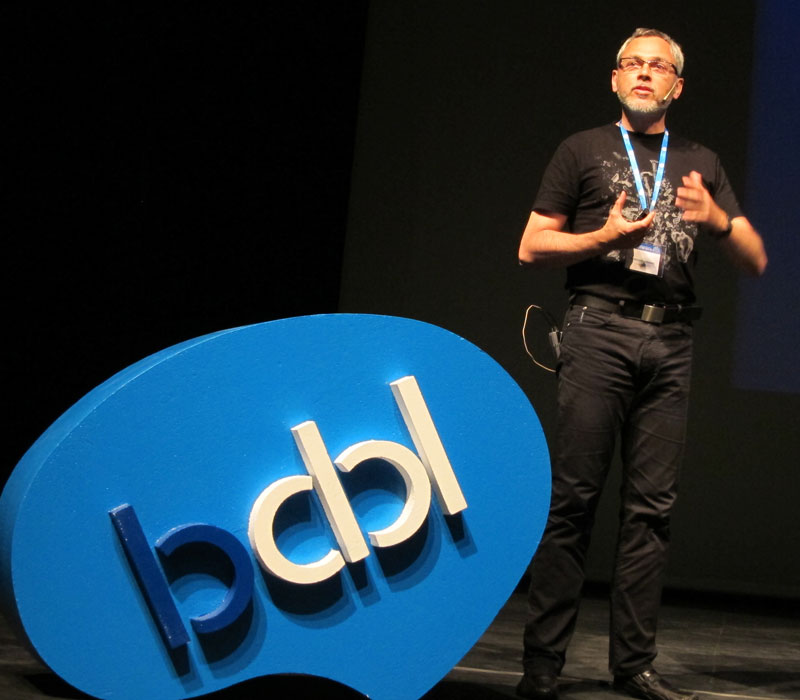
Bernhard Hommel
Bernhard Hommel (Leiden University, Netherlands) spoke about increasing empirical evidence that human cognition is grounded in sensorimotor experience. Hommel also spelled out three major empirical and theoretical challenges that will direct the future of embodied cognition research.





APS regularly opens certain online articles for discussion on our website. Effective February 2021, you must be a logged-in APS member to post comments. By posting a comment, you agree to our Community Guidelines and the display of your profile information, including your name and affiliation. Any opinions, findings, conclusions, or recommendations present in article comments are those of the writers and do not necessarily reflect the views of APS or the article’s author. For more information, please see our Community Guidelines.
Please login with your APS account to comment.